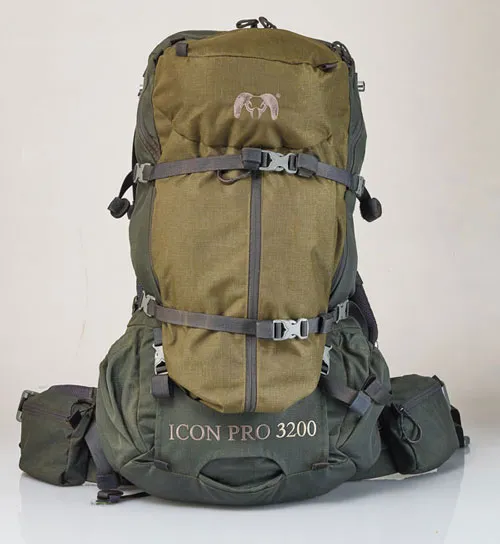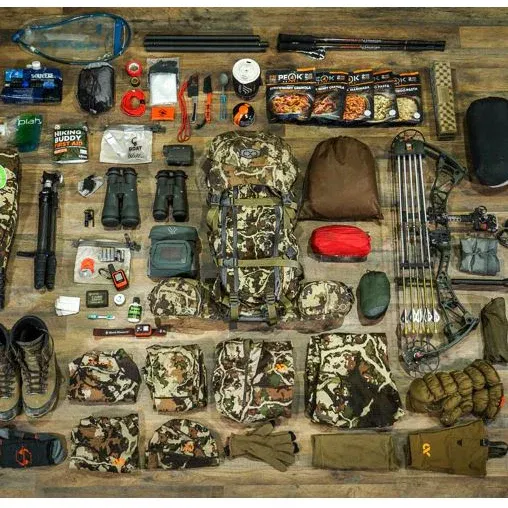What to Pack for a 3-Day Hunting Trip: The Ultimate Checklist for a Wild Weekend
When the call of the wild is too strong to ignore, and your boots are itching for forest floor, a 3-day hunting trip is the perfect way to reconnect with nature and chase adventure. But to make the most of your backcountry weekend, packing smart is essential. Whether you’re glassing ridgelines for elk, stalking deer in hardwoods, or heading into marshland for waterfowl, your gear can make or break the experience. This guide breaks down exactly what to pack for a 3-day hunting trip, blending field-tested essentials with a few game-changing extras.
Why Your 3-Day Hunting Pack Matters
Three days might sound short, but in the wild, every hour counts—and poor packing can turn your dream hunt into a logistical headache. Forget your ammo or your stove? That’s not just an inconvenience—it’s a ruined trip. Pack too much? You’re lugging unnecessary weight over difficult terrain. The goal is balance: mobility, readiness, and comfort. Every item in your bag should earn its place.
Clothing: Dress for the Hunt, Not the Runway

When deciding what to pack for a 3-day hunting trip, start with your clothing. Weather can change fast in the wild, and layering is the name of the game.
- Base Layer (Moisture-Wicking) – Keeps sweat off your skin. Merino wool is gold.
- Mid Layer (Insulating) – Fleece, down, or synthetic fill traps heat.
- Outer Layer (Waterproof/Windproof) – Quiet, breathable jackets that move with you.
- Hunting Pants – Durable and breathable with scent control if possible.
- Socks (x3) – Wool or performance socks. Always have dry backups.
- Gloves and Hat – Insulated and weather-appropriate. A blaze orange hat if regulations require it.
- Gaiters or Rain Pants – Especially if hiking through brush, snow, or wet ground.
Bonus tip: Pack one full extra outfit in a dry bag. Nothing beats slipping into dry clothes after a rain-soaked hunt.
Hunting Gear: Tools of the Trade
Your weapon is only the beginning. Don’t forget the accessories that support a successful harvest.
- Rifle/Bow + Ammo/Arrows – Double-check your zero or broadhead sharpness before you go.
- Hunting License & Tags – Laminated or stored in a waterproof pouch.
- Binoculars/Rangefinder – Know what you’re shooting at, and how far it is.
- Knife & Sharpener – For field dressing. Consider a replaceable blade knife for speed.
- Game Bags – Keep your meat clean and cool.
- Headlamp + Extra Batteries – For early starts and after-dark tracking.
- Scent Control Sprays/Wipes – If scent matters for your quarry.
- Calls/Decoys – Turkey, deer, elk… bring what speaks their language.
- GPS/Map + Compass – Don’t rely on a single electronic. Redundancy saves lives.
Camp Gear: Your Base in the Backwoods
Even minimalist hunts need some creature comforts. Here’s what you should bring to rest, refuel, and reload.
- Tent or Bivy Sack – Lightweight but durable, waterproof, and wind-resistant.
- Sleeping Bag + Pad – Rated for at least 10 degrees lower than expected lows.
- Camp Stove or Jetboil – Don’t rely solely on fire.
- Lighter + Waterproof Matches – Always bring both.
- Mess Kit (Cup, Bowl, Spork) – Keep it compact and easy to clean.
- Cooler (if vehicle-based) – For storing meat or cold items.
If you’re backpacking into remote zones, reduce weight with ultra-light options. If you’re in a base camp, bring extras like foldable chairs or even a solar charger.
Food and Water: Fuel the Fire
Packing food for a hunting trip is about calories, simplicity, and portability. Your body burns more in the cold and under physical stress, so plan accordingly.
- High-Calorie Snacks – Jerky, trail mix, protein bars, dried fruit.
- Dehydrated Meals or Freeze-Dried Packs – Lightweight and filling.
- Coffee or Tea – Instant options are lifesavers.
- Electrolyte Tablets or Drink Mix – Combat fatigue and muscle cramps.
- Water Purifier, Filter, or Tablets – Never depend solely on packed water.
- Hydration Bladder + Water Bottles – Stay constantly hydrated.
Bring enough for 4 days, just in case weather or success delays your departure.
First Aid and Emergency Gear
A twisted ankle, unexpected snowstorm, or lost GPS signal can change the game fast. A smart pack includes preparation.
- First Aid Kit – Include moleskin, painkillers, tweezers, antiseptic, and antihistamines.
- Emergency Blanket – Weighs nothing, saves lives.
- Whistle + Signal Mirror – For low-tech emergency communication.
- Multitool or Leatherman – Fixes everything from stoves to boots.
- Paracord (25 ft) – Campsite utility, meat hanging, even emergency tourniquets.
- Power Bank or Battery Pack – Especially if using digital navigation or hunting apps.
- Satellite Communicator or PLB – Optional but ideal for remote areas.
Extras That Make Life Better

Once you’ve got the essentials packed, you’ll still have room for small comforts that boost morale.
- Camp Chair or Seat Pad – Rest matters, especially during downtime.
- Notebook & Pen – Track sightings, journal the trip, or mark waypoints.
- Book or Playing Cards – Great for tent-bound hours during bad weather.
- Camera or GoPro – Capture memories beyond the harvest.
Final Thoughts: Smart Hunters Pack With Purpose
Knowing what to pack for a 3-day hunting trip means anticipating the highs and lows of the hunt. Your list should reflect your terrain, your game, and your goals. Over time, you’ll refine your system and develop your own “can’t-leave-without-it” gear rituals. But if you treat this packing list as your foundation, you’ll be ready for whatever the wild throws your way.
A successful hunt begins long before the first shot—it starts the moment you zip your bag shut and step into the unknown, fully prepared and fully alive.
FAQ Section
Q1: What is the most important item to pack for a 3-day hunting trip?
Your weapon, proper clothing layers, and navigation tools are the most essential. Without these, your trip can quickly turn dangerous or unsuccessful.
Q2: How much food should I bring for a 3-day hunting trip?
Aim for at least 2,500–4,000 calories per day, depending on weather and exertion. Pack calorie-dense foods like jerky, trail mix, and freeze-dried meals.
Q3: Do I need a water purifier for a short hunting trip?
Yes. Even for 3 days, clean water is vital. Natural water sources can be unpredictable, so a purifier or tablets offer backup if you run out of bottled water.
Q4: Should I pack differently for a solo hunting trip?
Yes. Solo hunters should carry a satellite communicator, emergency contact system, and extra navigation tools, since there’s no one to rely on in an emergency.
Q5: How can I keep my pack weight down?
Choose multi-purpose items (like a multitool), pack dehydrated meals, use lightweight tents and bags, and avoid packing multiples of gear unless necessary.
✍️ Author Bio: Ana Milojevik
Ana Milojevik is an outdoor travel writer and seasoned wilderness adventurer who specializes in gear prep and backcountry survival. With over a decade of hands-on experience across North American hunting grounds, Ana provides readers with practical advice rooted in real-world success and lessons learned the hard way. She writes to help hunters and explorers step into the wild with confidence, clarity, and a well-packed bag.